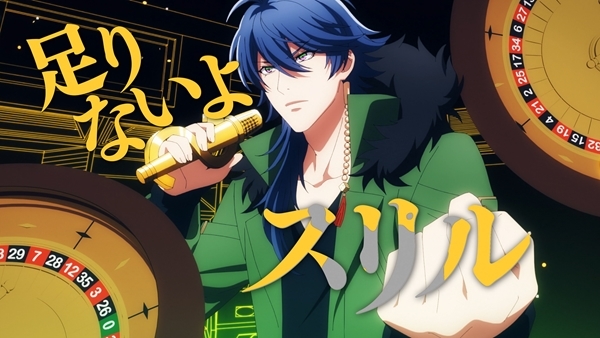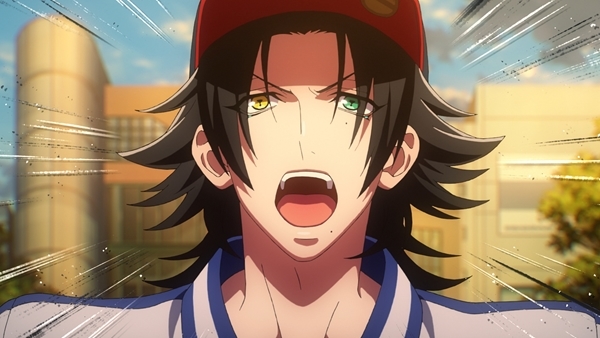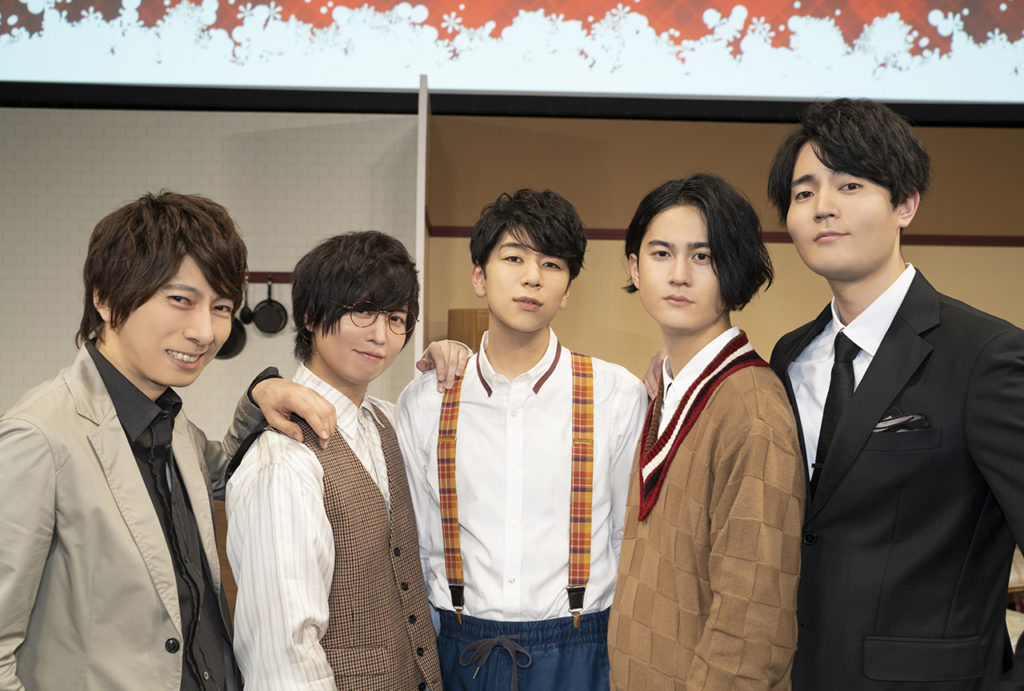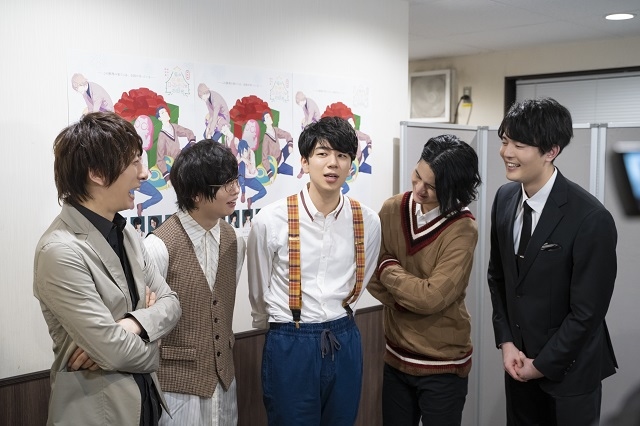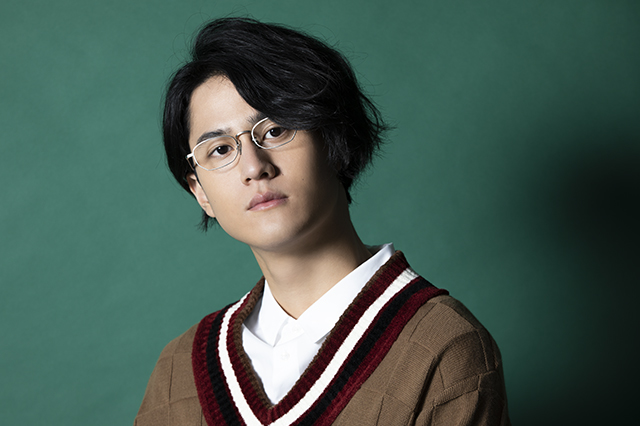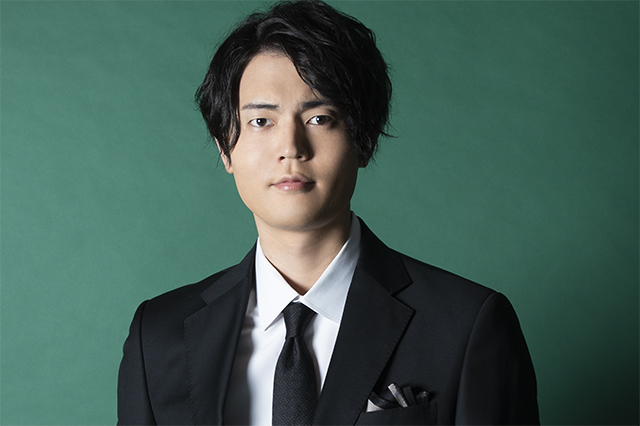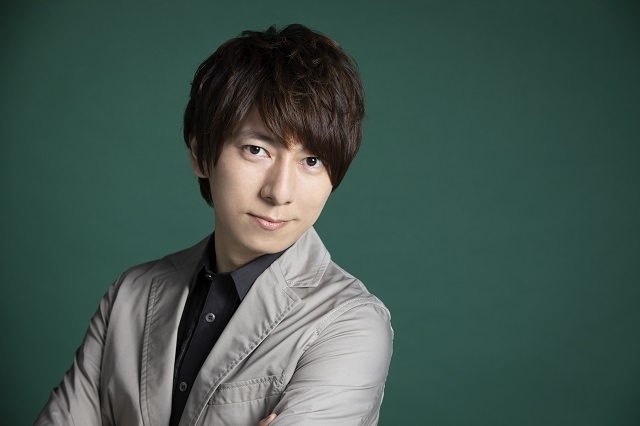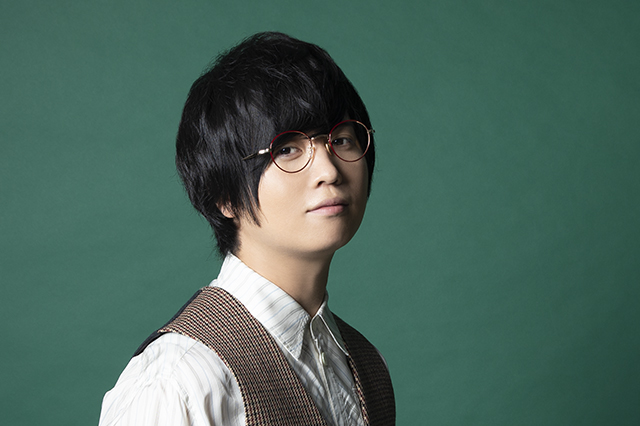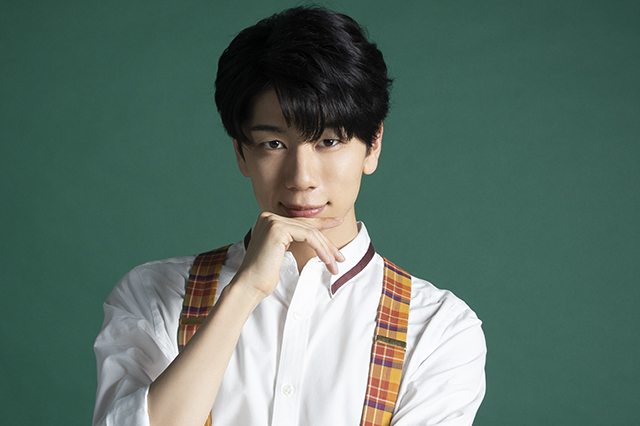(no scans because it’s still a recent release)
Released: 2021/1/22
Features:
Saito Soma
Nakao Ryusei
Mentioned:
Komada Wataru
Ueda Reina
Takahashi Rie
Saito Soma’s new serialization where he discusses “How It’s Made” with anime industry professionals. The first guest is Nakao Ryusei, who was Saito’s teacher at voice actor training school. Nakao was born in 1951 and debuted at the age of 5 on a radio drama. He discovered the industry in an era where “voice acting was an actor’s part-time job.” He became known for roles such as Baikinman in Anpanman and Frieza in Dragon Ball Z, and in 1985, he got involved in training the next generation at the previous iteration of 81 Produce’s training school. When Saito enrolled there, Nakao considered him “already skilled” from the very beginning. Here, they discuss what a training school teacher does and what the place means to voice actors.
Saito Soma and his respected former teacher discuss “Voice Actor Training School” (Part 1)
Saito: I went to training school more than ten years ago. There are a lot of things that I don’t remember very well, but I do still remember what happened there. For example, going to a summer festival with all of my classmates, like Komada (Wataru)-kun, Ueda (Reina)-san, and Takahashi Rie-chan. I think there were a lot of unique people in our year.
Nakao: It was a fun class with a lot of motivated people.
Saito: I feel like we also caused a lot of trouble *laughs*. I think there were a lot of really ambitious people. After class, we would always discuss what we learned that day in front of the train station.
Nakao: Wow!
Saito: I really enjoyed the debates we had. It was truly a time of adolescence, struggling and frustration included.
Nakao: 81 Produce’s training school curriculum used to be three years. You went there for one year, right? In the first semester you studied voice fundamentals and readings, the second semester was animation voicing, and the third semester was dubbing Western films. But now, animation voicing is done in the first semester.
Saito: Right off the bat?!
Nakao: Anime dialogue is caricaturized to begin with. Before you can study realistic dialogue and acting, you have to do caricaturized acting. There are also classes for fundamentals, speaking, and narration, but it’s still rather tough.
Saito: That’s demanding.
Nakao: The “Words” class that I teach is taught by two teachers in two time blocks. One teaches fundamentals while the other is for practical application like anime dubbing. We take turns teaching the blocks.
Saito: So, Ryusei-san taught me both fundamentals and practical application. We did the “Uirou-uri” (a type of kabuki prologue used for practicing articulation and enunciation) too, right? What I remember most from the lessons is “Wasshoi” which used the lyrics from Kitahara Hakushuu’s Omatsuri.
Nakao: We still do that now.
Saito: The line “Wasshoi, wasshoi. It’s a festival, it’s a festival!” would be repeated, and the following lines would be different things like “A hanagasa on our backs~” or “A portable shrine; it’s a portable shrine~”. We would all stand in a circle and recite the verses from memory. The person speaking goes in the middle of the circle, and when they’re done, they pick a random person to go next. So, you don’t know which part you’ll be reciting until the time comes…
Nakao: You pass the baton while keeping the rhythm.
Saito: We keep going until we make it to the end without making mistakes or breaking the rhythm. It was extremely nerve-racking voice training.
Nakao: The day’s lesson wouldn’t begin until they did it perfectly. It’s a type of theatre game (practice for developing acting ability). Even though you memorized the song, you might blank out when the time comes to say your part.
Saito: Exactly.
Nakao: It’s even more stressful for the last person. If they make a mistake, everyone has to start over from the beginning.
Saito: The pressure builds as the song progresses.
Nakao: It also acts as mental training. At an audition, “I really do have it memorized” doesn’t fly. You have to do it right then and there. We also teach the students to look at people’s eyes when choosing the next person, because you’ll be able to tell if they remember the next line or not.
Saito: You can sense if they’re sending the “I can do this one” signal.
Nakao: Then you can also tell if they’ve memorized the entire song or if they only know one part. However, that’s not always going to work either, so what do you do? We have them work on a solution together.
Saito: You have to think about multiple things at the same time. It’s like that when voice acting too.
Nakao: The workplace is no different.
Saito: If you told me to do “Wasshoi” right now, I think I’d say “Please give me a break.” *laughs*
Nakao: Then, the final part of training school is the presentation.
Saito: Each class presents a work that’ll be the culmination of what they learned that year.
Nakao: We want everyone to come together to create a single work. Even though they aren’t “eating out of the same pot,” we want them to have that foundation. It’s also on them to find a place to practice.
Saito: For our independent practice, everyone pooled money and looked for a place we could rent. Also, each class had their specialties—for example, if they had someone who was good at making arrangements, they would get a training place booked in a flash.
Nakao: The duties naturally get distributed.
Saito: The world of acting involves working together to create something, which comes with both enjoyment and difficulties. We learned about that at training school too.
Nakao: We teachers are like driving school teachers. We can drive with one hand spinning the steering wheel, but we have to teach the students fundamental driving techniques like holding onto the wheel firmly with both hands.
Saito: What I appreciated the most at training school was that on top of teaching us the basic mentalities and techniques, they also made us think for ourselves. Instead of saying, “Do it like this,” they asked questions like, “How did that feel?” or “How do you want to do this?” I’m the kind of person that likes to think. Conversely, that means I tend to be satisfied with small successes. Also, at first I had a strong desire to not make mistakes, but Ryusei-san told me, “This place exists for you to make mistakes.” He never once scolded us unfairly either.
Nakao: I did scold people.
Saito: Aren’t scolding and admonishing completely different? I consider what you did “admonishing.” When you admonished us, we really did deserve it.
Nakao: I never admonished you alone, right? But I did admonish the class as a whole.
Saito: There was a time when we got too used to your kindness.
Nakao: It wasn’t my kindness—since we always studied from the same materials, you got used to the course content. When people become competent to a degree, they let their guard down. That’s when I scolded them and said, “Don’t get used to it!”
Saito: Ryusei-san is usually really nice, but when he says, “Tighten up this part and try again with firm emotion,” it’s sharp and motivates you.
Nakao: Saying it sharply makes them perform sharply, right? And then I scold them again, saying “Why didn’t you do it before I had to tell you to?!” I just don’t like it when they can do it but they don’t. If they can’t do it, then that’s a different story. But being capable yet choosing not to do it is bad. I get a little angry when that happens.
Saito: The sound pressure went “bang!” that time. I thought, “So this is what it means to have a voice resonate through your body!” That was when I experienced a real professional’s vocal force directly instead of through a mic.
Nakao: I’m always practicing for that purpose *laughs*. If you wait until you’re told to do it, it’s too late. When you become a professional, you have to do it properly from the start.
Saito: When we first started training school, our mindset was “first, be taught.” From there, we switched gears to assembling our own performances and acclimating our bodies to those ideas. Come to think of it, I expected the “Uirou-uri” story to come up today, so I reviewed it and was astounded. I thought I’d analyzed the content and its meaning back then, but when I read it now, it’s like seeing it through a higher resolution lens. I thought I understood it back then, but my perspective was too narrow.
Nakao: “Uirou-uri” has a lot of components. Accents, nasal sounds, devoicing…
Saito: Back then, I was really focused on memorizing it properly. “Uirou-uri” is about using any means possible to sell the audience on an amazing medicine. When I reviewed it, I kept thinking about how I’d want to present it. But if I did it right now, I think it’d sound extremely shady. *laughs*
Nakao: That’s brilliant. *laughs*
Saito: Since being taught by you, I’ve come to like more things. Back then, I was in my third year of university. That year, I decided that I would dedicate my whole life to walking the path of voice acting.
Nakao: Really?
Saito: I didn’t think my personality was suited for being a voice actor because I didn’t think I could take a step forward with sensitiveness or explosiveness. That was all I thought about every day. One day, I was eating in the school cafeteria, and I suddenly thought, “Wait—if my personality isn’t suited for it, does that mean that if I keep doing voice acting work for my whole life, I’ll be able to change myself over the course of my lifetime?” I called my parents right then and there and told them, “I’m not going to go job hunting.”
Nakao: So that’s when you decided.
Saito: Both of my parents are enthusiastic teachers. They said, “It’s your own life. We’re happy that you discovered what you want to do.”
Nakao: That’s kind of them.
Saito: They also said, “But since it’s your life, be responsible for it yourself.”
Nakao: I’m definitely never meeting your parents! They’d probably say, “Was it you who tricked our son?!” *laughs*
Saito: No way *laughs*. I talk to my parents about what you taught me.
Nakao: They sound like good parents. When you were taking my classes, you were always worrying.
Saito: A lot.
Nakao: And now you’re shining. You were a bit dark when you were worrying.
Saito: *laughs* Yeah.
Nakao: At the time, I thought, “He’s the type to overthink, huh?” It was a worrying time period for you.
Saito: Back then, I was intentionally narrowing my field of vision. All I thought was, “I need to show good results here so that it’ll lead to the next step!” I think that that in itself was a necessary time for me.
Nakao: What we teach at training school isn’t that grandiose, right? The first thing we talk about is always your mentality and the “wait” attitude.
Saito: Right. At training school, rather than how to be an actor, I learned a lot more about the fundamental mentality that I should have as a person who’ll be entering society.
Nakao: Our job is to wait. We have to wait until work comes. How do you spend your time waiting? “Lessons are important, but how are you going to live your life until our next class?” Since the classes continue for a year, I want the students to wait effectively. After they become professionals, this will stick with them for the rest of their lives.
Saito: Even now when I meet people from that class, we often talk about the “wait” attitude.
Nakao: Everyone’s working as hard as they can, right? Because they’re pros. But what do you do when you don’t have work? This becomes the most important thing. Waiting effectively, concentrating effectively, and putting forth your best effort. Also, don’t slack off during lessons!
Saito: I think that 2020 in particular was a time for the whole world, not just actors, to think about “waiting.”
Nakao: Everyone, yes.
Saito: I try to keep the wait attitude, but sometimes I give in and I’m just waiting, or I become too passive. We voice actors only exist because of creative works and characters, but that said, we should also be able to actively create and express something. I thought a lot about how it’s important to “wait actively.” I can’t practice in a really loud voice at home, after all. *laughs*
Nakao: I’ve been working for many years too, and this is the first time I’ve had so much time to myself. At times like this, your mentality is the most important thing. We’ve been living rather brazenly, but the young people who are starting out in their career have weaknesses in their mentality. How will they fortify those and wait until their next opportunity? It might be a good idea to think about that.
(Continued in Part 2 in Monthly TV Guide 2021/4)
Bonus
- Soma talks more about the “wait” attitude he learned from Nakao in this interview with Livedoor News.
- Video messages promoting this new serialization:
(*He says 1/24 in the video, but the actual release date was 1/22.)














